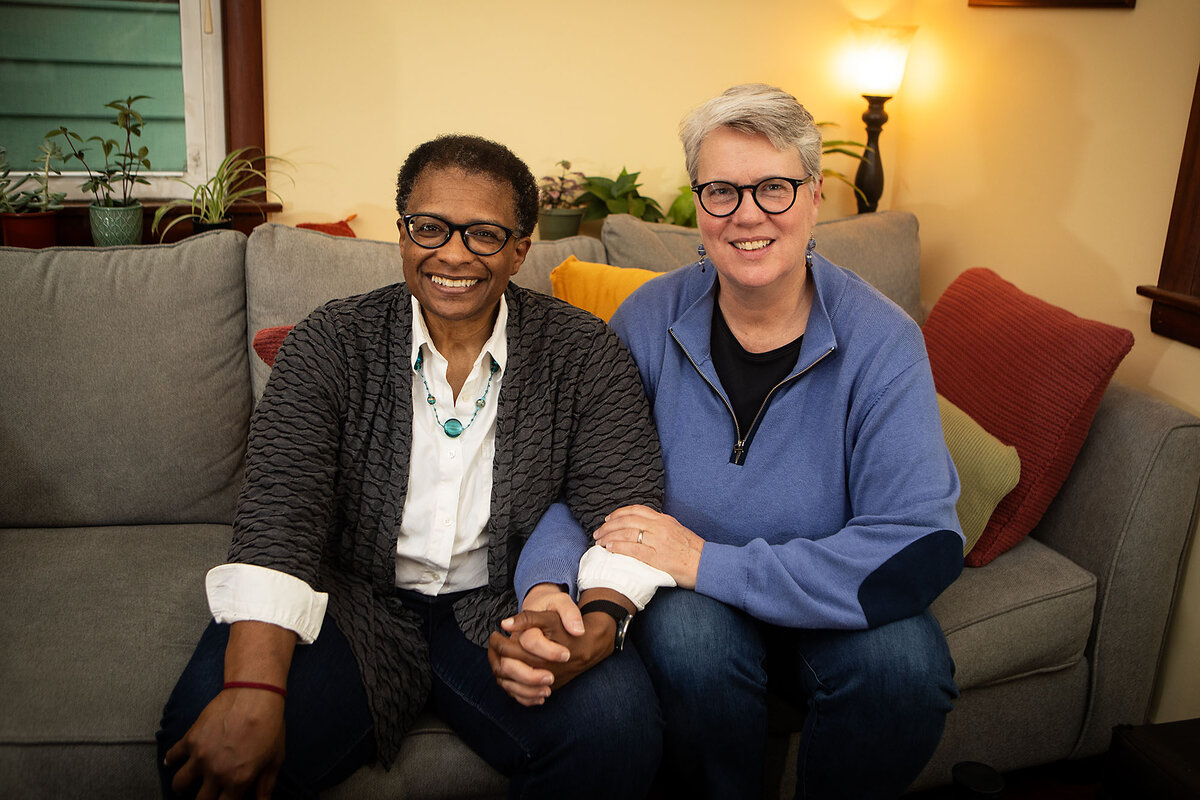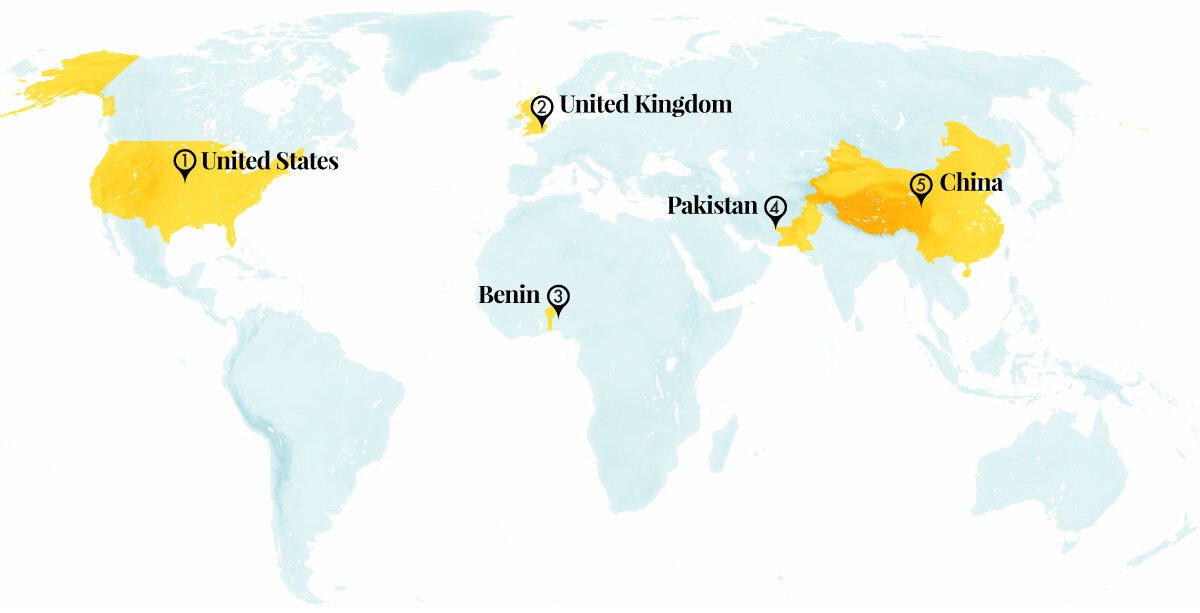The controversy around the Pennsylvania senator’s strong support for Israel says as much about the evolution of the Democratic Party as about the nonconformist approach John Fetterman has taken to politics.

Why is Christian Science in our name?
Our name is about honesty. The Monitor is owned by The Christian Science Church, and we’ve always been transparent about that.
The Church publishes the Monitor because it sees good journalism as vital to progress in the world. Since 1908, we’ve aimed “to injure no man, but to bless all mankind,” as our founder, Mary Baker Eddy, put it.
Here, you’ll find award-winning journalism not driven by commercial influences – a news organization that takes seriously its mission to uplift the world by seeking solutions and finding reasons for credible hope.
Explore values journalism About usMonitor Daily Podcast
- Follow us:
- Apple Podcasts
- Spotify
- RSS Feed
- Download
 Mark Sappenfield
Mark Sappenfield
We talk a lot about words in this column. We don’t talk enough about images. Today, I find I just can’t stop looking at the images of Heidi and Gina Nortonsmith taken by staff photographer Melanie Stetson Freeman 20 years apart.
The story is about the landmark 2004 Massachusetts court decision legalizing same-sex marriage. The images contain more than words could ever say. They are radiant portraits of stability and trust and patience and such boundless joy. I look at them, and I feel I have shared some small fraction of two extraordinary lives.
Help fund Monitor journalism for $11/ month
Already a subscriber? Login

Monitor journalism changes lives because we open that too-small box that most people think they live in. We believe news can and should expand a sense of identity and possibility beyond narrow conventional expectations.
Our work isn't possible without your support.
Today’s stories
And why we wrote them
( 8 min. read )
Today’s news briefs
• Putin, Xi summit: Russian President Vladimir Putin and Chinese leader Xi Jinping reaffirm their “no-limits” partnership as both countries face rising tensions with the West.
• Israeli force faces challenge: South Africa asks the top United Nations court to order a halt to Israel’s Rafah offensive as part of its case at The Hague accusing Israel of genocide in the Gaza Strip.
• Civil unrest in New Caledonia: Violence is raging across New Caledonia for the third consecutive day, and France has imposed a state of emergency in the French Pacific territory.
• Supreme Court redistricting ruling: The U.S. Supreme Court ordered Louisiana to hold congressional elections using a House map with a second mostly Black district, despite a lower court ruling that called the map an illegal racial gerrymander.
The Explainer
( 4 min. read )
The United States recently completed a floating pier to deliver crucial humanitarian aid to Gaza. The effort also brings logistical and security challenges for U.S. forces.
Patterns
( 4 min. read )
War can create uncomfortable common ground between opponents. In Gaza, political interests of the leaders of Israel and Hamas may be helping to extend the conflict despite negotiators’ urgent efforts.

( 5 min. read )
Friday marks the 20th anniversary of the first same-sex marriages in the United States. Two Massachusetts couples reflect on how they felt at the time – and on what marriage equality has meant to them since.
Points of Progress
( 4 min. read )
In our progress roundup, we have two stories of meeting people where they are. In China, an electric vehicle company makes swapping the battery faster than charging the car. And in Pakistan, volunteer storytellers spread the joy of books to children in a spontaneous outdoor story time.
The Monitor's View
( 2 min. read )
Since 1990, the total number of armed conflicts worldwide has seldom dropped below a hundred. The world’s desire to prosecute those who start wars or commit war crimes, meanwhile, has grown. Last year alone, the number of cases brought before national courts for international crimes rose by 33%, according to an annual survey published in April.
Now the boundaries of such accountability face a new test. On Wednesday, the Paris Court of Appeal heard arguments concerning a French arrest warrant for Syrian President Bashar al-Assad for war crimes. The case has broad ramifications for the principle of universal jurisdiction, or the idea that a country can prosecute war crimes committed outside its borders. No sitting head of state has ever faced charges in a foreign domestic court. A decision in Paris affirming equality before the law would mark a turning point in international justice.
For societies resigned to injustice, the debate alone matters.
“Heads of State have been understood to be immune before foreign domestic courts,” a grouping of Syrian and international rights organizations wrote in a letter to the Paris court last week. “Ongoing impunity ... only serves to perpetuate the cycle of violence and suffering for victims and survivors. It undermines the international rule of law.”
Dozens of prosecutions are underway in 13 countries involving individuals accused of crimes against humanity in 35 different states, according to the 2024 Universal Jurisdiction Annual Review. Charges include genocide, sexual violence, and financing of terrorism. Sixteen people were convicted last year outside their country of citizenship, all in European domestic courts.
In Syria, a brutal crackdown of peaceful protests in 2011 sparked a civil war that the Britain-based Syrian Observatory for Human Rights estimates has killed more than 500,000 people. Nearly 17 million need humanitarian assistance, the United Nations counts. More than 7 million are displaced.
A lower French court issued arrest warrants last November against Mr. Assad, his brother, and two generals for attacks against civilians involving chemical weapons in 2013. They represent four of 49 cases underway in nine European jurisdictions against Syrian nationals. Switzerland announced in March it would try one of Mr. Assad’s uncles. Courts in Germany and the Netherlands have already convicted lower-ranking Syrian officials.
In seeking clarity on the Assad warrant, French prosecutors have effectively asked the Paris court to establish a new benchmark for international law beyond the immediate case. “The issuance of this warrant raises a fundamental legal question about the immunity rationale enjoyed by heads of state,” they stated.
Their intention “to see this question decided by a higher court” underscores a core ideal of universal jurisdiction. When democratic societies prosecute war crimes, they set foundations for reconciliation by listening to victims and drawing on the investigative work of local civil society organizations. Perhaps more importantly, they uphold human dignity by modeling the principle of equality before the law.
A Christian Science Perspective
Each weekday, the Monitor includes one clearly labeled religious article offering spiritual insight on contemporary issues, including the news. The publication – in its various forms – is produced for anyone who cares about the progress of the human endeavor around the world and seeks news reported with compassion, intelligence, and an essentially constructive lens. For many, that caring has religious roots. For many, it does not. The Monitor has always embraced both audiences. The Monitor is owned by a church – The First Church of Christ, Scientist, in Boston – whose founder was concerned with both the state of the world and the quality of available news.
( 3 min. read )
Prayer helps us rise above a false responsibility for our loved ones to see more of the eternal harmony of God and God’s creation.
Viewfinder

A look ahead
Thank you for joining us today. Please come back tomorrow when our Rebuilding Trust project looks at the vital question of whether mail-in voting is as secure and fraud-proof as other methods.






